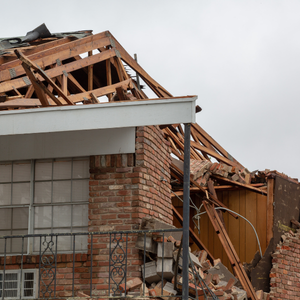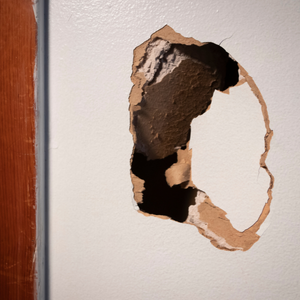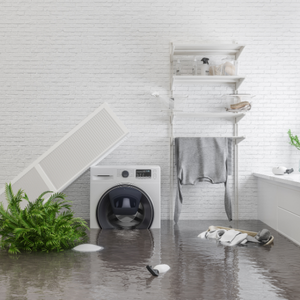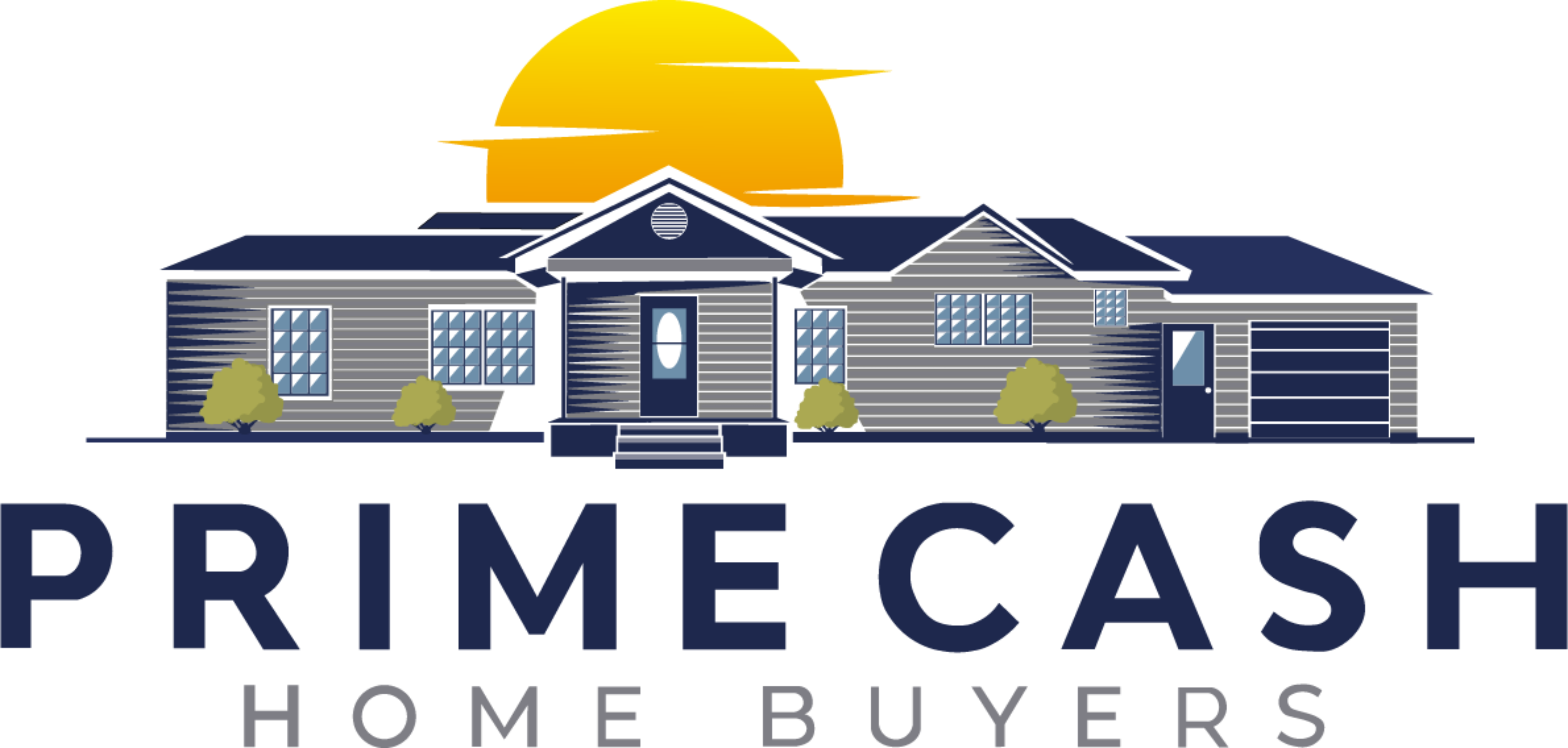
Understanding Tenant Responsibilities for Property Damage
For property owners in Augusta, managing rental units involves knowing each tenant’s liability with respect to damages. In most cases, a tenant bears damages and losses which are in excess of the normal dwelling unit depreciation.
The loss of items like stoves, damages, defacement of units like walls and carpets are also damages that the tenant must take responsibility for and pay for. Landlords must outline to the tenants regarding essential deposit refund and loss liabilities before the tenants enter the property and lease the unit.
These clauses, in a way, help the owner improve his unit’s value and also provide better rental services to their multi-family unit tenants. Landlords must implement a unit inspection program and also maintain a unit history document, which will help the owner determine the tenants’ damages easily.
This, in turn, will lead to better lease observance and improve observance of unit care among leaseholders. Understanding these elements facilitates the Augusta property owners and tenants to better lease and preserve the houses in the region.
Assessing Property Damage: A Landlord’s Guide

Evaluating property damage poses critical challenges for landlords and other real estate owners, more so when dealing with tenant-related problems in rentals. A systematic assessment starts with a detailed and comprehensive inspection of the rental unit to flag any signs of damage that go beyond the typical usage of the property.
Landlords incur noteworthy costs in managing and rectifying damages which can be minimized with proper record assessments. Accurate records, such as photographs and log updates focusing on the unit’s walls and flooring, its appliances, and other fixtures, can serve to minimize costs and time. Furthermore, knowing the boundaries of excessive damage for the deduct and legal action also plays a critical role in overall costs.
An adequate understanding of the applicable legal provisions can assist property owners in managing tenant compliance while ensuring that assessments are equitable and impartial. Professional evaluators such as property management firms assist landlords in making unbiased and objective assessments in relation to repairs and replacements that need to be done to uphold the property’s value, thus helping attain an impartial evaluation in reclaiming the value.
Documenting and Reporting Tenant Damages Effectively
Accurately documenting and reporting damages caused by tenants is vital for landlords in Augusta for effective management of their rental properties. An effective property inspection is integral before the new tenant’s move-in, and a detailed checklist noting every applicable area of the property aids in its verification.
In today’s era, taking high-resolution photographs or videos during the initial walkthrough is digitally capturing visual evidence. When tenant damages occur, landlords also need to be proactive by collecting updated photographs, reporting them, and including the date, time, and critical details alongside the damage report.
This report, alongside the move in condition records, helps illustrate discrepancies. Moreover, keeping open communications with tenants regarding any issues aids in ensuring transparency and in some cases helps in expediting the receipt of the issue resolutions.
Timely submission of the damages to the insurance or legal specialists bound to cover the issues, aids in limiting the landlords exposure to liability and financial loss. Well-maintained records not only buttress the claimed legal issues, but also assist in recovering the repair costs from the security deposit when applicable.
With a structured and organized method for documenting and reporting tenant damages, Augusta landlords are able to maintain the properties, secure their investments, and nurture healthy tenant relationships.
Legal Implications of Tenant-caused Damages
Grasping the legal aspects of tenant damages is important for landlords in Augusta with rental properties. Landlords should have knowledge of the statutory and local housing regulations to inform them of their prerogatives and obligations in managing damages to the property, which are attributed to tenants.
Tenant obligations, including maintenance and reporting damages, should be encapsulated in the lease agreement alongside clauses that deal with maintenance and tenant-caused damages. From a legal perspective, having clauses that dictate the procedures for the treatment of security deposits in the event of a dispute is essential, since these funds are often used to settle damages.
Professional valuations and photographs are, for instance, necessary in justifying claims brought against tenants over damages to the premises, and landlords have to be alive to the legal frameworks of recording these damages. Having knowledge of the laws on eviction is crucial for landlords who, because of ongoing or severe damages to the property, have to remove the tenants and are not diplomatically able to settle.
Understanding these issues puts landlords in Augusta in a better position to respond to tenant-caused damages and thereby reduce their risks and liabilities to the tenants while remaining compliant with local laws.
The Role of Lease Agreements in Managing Property Damage
Lease agreements are essential for landlords in Augusta in controlling property damage inflicted by tenants. These agreements are legally enforceable contracts which minimize conflicts by detailing the rights and obligations of both parties.
Lease contracts reinforce tenants’ liability for property maintenance by specifying the reporting and repair processes of property damages. These agreements also outline the consequences of non-compliance, which typically come in the form of financial loss, legal action, or eviction.
Tenant lease agreements also need to contain clauses regarding the security deposits as they mitigate the financial losses landlords face in repairing tenant inflicted damages. Besides, lease agreements usually contain terms for periodic inspections which enable landlords to assess the condition of the property and rectify problems in a timely manner.
Thus, lease agreements are vital in the minimization of damage to rental properties as they provide tools to facilitate effective communication and understanding between landlords and tenants regarding rentals.
Steps to Take When Tenants Damage Rental Property
Timely and well-planned responses are required from property owners and landlords in Augusta when the rental property has sustained damages due to tenant activities. This typically begins with a comprehensive inspection to gauge the scope of destruction inflicted to the property.
Focusing on taking photos and writing notes will greatly assist in demonstrating how tenants foresee actions and their consequences. Such materials will come in handy if disputes arise. After gathering all evidence, landlords are to go through the lease to make sure that they know what constitutes normal wear and tear, considering damage inflicted on the property. This ensures they are clear on what normal wear and tear is and what damage the tenant is liable to incur.
Maintain a proper channel of communication with the tenant. They should read and hear what the findings are and what the next steps are from their perspective. Sometimes repairs are more beneficial when blended with a totaling of the security deposit, provided of course that Georgia rental housing laws fundamentally are abided.
In the event that there is damage that is beyond what the security deposit is set at, and there are disputes, landlords are likely to take drastic actions such as coming to a mediation, or arbitration. Staying organized and durable will help you in resolving the disputes and provide aid in securing your rights as a landlord.
How to Handle Security Deposits After Property Damage
For Augusta landlords, effective management of security deposits is especially important when there is property damage by the tenant. All instances of property damage must be documented, step by step, taking thorough photographs, writing detailed notes, and consolidating other evidential documentation, so that landlords are prepared in case any disputes arise in the future.
Comparing the documentation against the move-in inspection report is crucial to determine the actual damage and distinguish between wear and tear. After conducting a thorough assessment of the property damage, the landlord needs to determine the cost to fix such damage. Professional contractors can be hired to estimate damage repair to enhance credibility in the evaluation of the case. This mitigates disputes during the fixing of the property.
As per Georgia law, a landlord is required to furnish itemized statements to the tenant within 30 days after the lease is terminated that detail the deductions made from the security deposit. Such a statement must outline each entry and be supplemented with receipts or estimates of the prescribed repairs.
Providing tenants with such documents tends to increase the possibility of disputes and lawsuits, which can damage the landlord’s reputation. Moreover, Augusta landlords need to be cautious not to overstep or be deemed in violation of the rules of the law for failing to comply with deposit security regulations.
If properly adhered to, the guidelines allow Augusta landlords to efficiently and effectively fix tenant-caused property damage and preserve good landlord-tenant relations.
Insurance Considerations for Landlords with Damaged Properties

In order to efficiently safeguard their investments, landlords in Augusta need to grasp the insurance implications surrounding tenant inflicted damage to property. Policies specifically tailored to landlords offer coverage pertaining to some damages that might arise during the tenancy.
Landlord insurance Policies Augusta offers will often include structural damage coverage, which is vital for safeguarding against damage to walls, floors, or other structural components. Additionally, it is advisable that as part of their insurance package, landlords explore liability coverage; this can take care of legal expenses as well as any medical expenditure in the event of injury on the rental property as a result of the tenant’s actions.
Landlords need to be aware of the distinction between standard homeowner’s insurance and policies tailored for landlords, as the latter are meant to address concerns related to rental properties. Regular review of policies ensures that the coverage amounts and limits meet the prevailing value of the property as well as the repair and rebuild costs.
Landlords may wish to include loss of rent insurance, which pays out for income not received when a property is unlivable because of considerable damage inflicted by the tenant. Using a carefully tailored insurance policy and understanding the relevant terms, Augusta landlords can protect their finances and ensure the sustained viability of their rental properties through thorough, comprehensive insurance planning and policy monitoring in the event of unanticipated tenant-inflicted damages.
Strategies for Preventing Tenant Damage in Rentals
By applying focused strategies, Augusta landlords can manage and mitigate tenant-related property damages. First, thorough tenant screening along with rental history, employment, and credit verification increases the chances of securing responsible tenants who do not damage the property.
Communication of outlined lease and cleaning responsibilities during the lease signing mitigates misunderstandings, which enables landlords to avoid misattributed blame. Periodic property inspections aid landlords in spotting emerging issues. This enables early and often proactive correction of issues that, if left unattended, could develop into larger damages.
Landlords relying on space-use patterns could install less easily damaged surfaces and furnishings in spaces likely to suffer high traffic, thus assisting in minimizing property depreciation. Providing detailed move-in checklists facilitates the reporting of already existing damages which thwarts subsequent responsibility over-accountability disputes.
Tenant instructions on the care of the unit can be augmented to promote proper care of the unit. Finally, a substantial security deposit that disincentivizes possible damage alongside abrupt financial loss mitigates unplanned repair expenses while preemptively guarding against several monetary risks.
Dispute Resolution: Negotiating with Tenants Over Damages
To resolve disputes regarding tenant-caused damages to property, Augusta landlords need to pay special and sustained attention to negotiation strategies, concentrating particularly on amicability. Framing open channels for communication is critical for resolving conflicts and allows the aggrieved and the aggressor to voice their grievances and work towards a resolution that serves both parties.
Landlords, for their part, need to have a grasp of the various relevant provisions of the lease regarding damages as these do provide some guide in the various exchanges that will be made. As mentioned above, disputes need to be resolved, and for landlords, disputes need to be resolved without out-of-court settlements.
Landlords, for their part, need to make out-of-court settlements. One of the best practices is to meet with the property managers and their lawyers, and for the landlords to provide their upfront documentation and document the repairs and damage, and write a formal report that is presented in the meeting.
Documenting repairs offsets the responsibility on the tenant and helps the tenant appreciate their duty. Although negotiation on remuneration for damages calls for a dispassionate approach, some landlords have been known to consider, in some circumstances, paying in part and availing some of the pay in a gentler action.
The smart thing to do in this case is to attain amicable agreements. No one lands in a black and white solution, and fundamentally understanding that helps resolve disputes without seeking court intervention, to the delight of both parties.
Who Is Responsible for Damage to a Rental Property?
Landlords in Augusta need to understand the intricacies of tenant-landlord law and lease agreements to ascertain the extent of damage to a rental property. In most cases, the damage to properties is categorized as either normal wear and tear or tenant-caused damage.
Landlords bear the primary liability of preserving the rental property’s boundaries and dealing with the problems that come from normal utilization of the property. In most cases, tenants bear the burden of all damages to the estate that are in excess of normal wear and tear, including hole-filled walls, broken windows, and damaged household appliances due to careless use.
All of these responsibilities are well set out in lease agreements to avoid conflicting claims. If there are any damages, landlords will have to apportion the security deposit to fully restore the property, despite the damages being claimed as normal wear and tear.
Effective management of tenant-caused property damage in a locality with specific rules regarding borrower rights and property lender responsibilities hinges on the knowledge of the said rules. Regular inspections and communication with tenants enhance the management of properties in Augusta and reduce the likelihood of disputes.
Can You Sue a Tenant for Damages in Georgia?
In Georgia, an active lawsuit can be filed by a landlord for damages inflicted on the property by the tenant. Landlords have the right to legally pursue their tenants for damages that exceed the normal wear and tear of a property during the tenancy period.
The landlord must gather sufficient proof, in the form of photographs and documentation, showing the extent of the damage for a legal claim to be valid. Providing some form of a repair quote can further strengthen the proof of cost incurred..
It is reasonable for the landlord to reference the lease agreement as it can contain the defined responsibilities for the tenant, as well as an allocation of damages and liabilities. A lot of landlords also choose to pursue a claim in small claims court in the case where property damage has been done and the amount involved is small.
The law allows landlords to balance the security deposit with repair costs, provided that reasonable notice has been given. It is also recommended to try and mediate or settle the dispute before escalating the dispute to court for resolution.
The legal avenues available allow landlords in Augusta to proactively manage property damages caused by tenants and effectively take measures to rectify the situation provided by the law.
How Long Does a Landlord Have to Make Repairs in Georgia?
Landlords in Georgia have competing obligations with respect to timeframes for responding to damage caused by tenants in rental housing. Under state law, a landlord must undertake to repair damages only within a so-called “reasonable period” after receiving notice of damage by the tenant.
Such timeframes will depend on the type and extent of the damage, and the conditions of the lease agreement. Such repairs also include urgent repairs like plumbing and electrical repairs, which are often essential for the continued occupancy of the rental premises. Such repairs will usually have to be done within the time periods stipulated for rental properties in Georgia law.
Failure to repair damages within a reasonable time will, among other problems, complicate the legal situation and, in some instances, even violate the health and safety codes. Landlords in Augusta should educate themselves about the legal obligations placed on landlords in Georgia, to avoid legal trouble and improve the flow of communication with the tenant about repair timelines and tenant-caused property damage.
What Is the Property Damage Law in Georgia?

In Georgia, understanding the law of property damage is crucial for landlords operating rental properties, especially in cases of damage done by rental occupants. Knowing the specifics of Augusta, Georgia, rental laws will significantly help the landlords of Augusta deal with property damage issues.
It is the law of Georgia that a tenant is responsible for the proper care of the rental property and must surrender the property in the same condition, with the exception of normal wear and tear. In fact, landlords are inclined to collect security deposits to defend the damage claim which is more than normal wear and tear.
It is very important for Augusta landlords to document the condition of the property with the tenant before and after the period of tenancy in order to have accurate records. Georgia law has provisions that landlords must give to tenants, within 30 days of the lease expiring, a written list of damages for which the security deposit was reduced.
Additionally, in case of disputes for property damage and even for deduction of the security deposit, the law of Georgia provides ways for disputes to be settled by mediation and even by a small claims court. A landlord in Augusta who is knowledgeable of property damage laws, or works with Prime Cash Home Buyers, will be better equipped to ensure legal compliance and protect their investments in Augusta.
If you’re facing significant damage or considering stepping away from the rental market, there are options available. Working with a company that buys homes in Evans or nearby cities, or with investor home buyers in Augusta or nearby cities, can offer a fast, hassle-free exit without the need for costly repairs. Whatever your next move may be, taking action now ensures you stay in control of your property and its future. Your investment deserves protection—let this guide be your foundation.
Do you need to sell your home due to tenant damage or property wear and tear? Whether you’re dealing with costly repairs, lease violations, or just prefer a hassle-free sale, Prime Cash Home Buyers is here to help. We offer fair cash offers, handle all the details, and make the process seamless, even if your rental property has been damaged by tenants. Ready to sell or have questions? Contact us at (706) 670-6543 for a no-obligation offer. Get started today!
Helpful Augusta Blog Articles
- What Do I Need To Do To Sell My House In Augusta, Georgia?
- How To Successfully Sell Your Mortgaged Home In Augusta, GA
- Tax Obligations When Selling Your Home In Augusta, GA
- Selling A House With Tenants In Augusta, GA
- Tenant-caused Property Damage In the House in Augusta, GA
- FSBO Paperwork For Selling Your Home In Augusta, GA
- Homeowners Insurance When Selling in Augusta, GA
- Cost Of Home Appraisals And Inspections In Augusta, GA
- Sell Your Augusta, GA, Home With Code Violations
- Costs Of Selling Your House In Augusta, GA
- Navigating House Sales In Augusta, GA
- Capital Gains Tax After Selling a Home in Augusta, Georgia
- Can I sell a house with a quitclaim deed in Augusta, GA?
- Selling Home with Reverse Mortgage in Augusta, GA
- Augusta, GA, Neighborhood Map
- The Best and Worst Neighborhoods in Augusta, GA

| PREMIUMS | INSURER | INSURANCE CLAIMS | INSURANCE CARRIER | INSURANCE COMPANIES | INSURANCE COMPANY |
| INSUREDS | ATTORNEY | ATTORNEY AT LAW | LEGAL PROFESSION | LAWYER | THE STATE OF GEORGIA |
| LANDLORD AND TENANT | INJURIES | TRAUMA | RENTED | RENTING | SUBLEASING |
| LEASING | AUGUSTA, GA. | NEGLIGENCE CASE | INSURANCE POLICY | ROOFS | LIABLE |
| LANDLORD TENANT LAWS | AUTOMOBILE COLLISIONS | CAR ACCIDENT | COLLISION | PERSONAL INJURY CLAIMS | PERSONAL INJURY |
| PROPERTY MANAGEMENT SOFTWARE | MONEY | AUTOMOBILE | ATTORNEY FEES | ATTORNEY’S FEES | PROPERTY INSURANCE |
| INFORMATION | PERSONAL INJURY LAW | PERSONAL INJURY ATTORNEYS | PERSONAL INJURY LAWYER | EMAILS | RENTAL AGREEMENT |
| REAL ESTATE | ATLANTA, GA | ATLANTA | VEHICLE | DBA |
